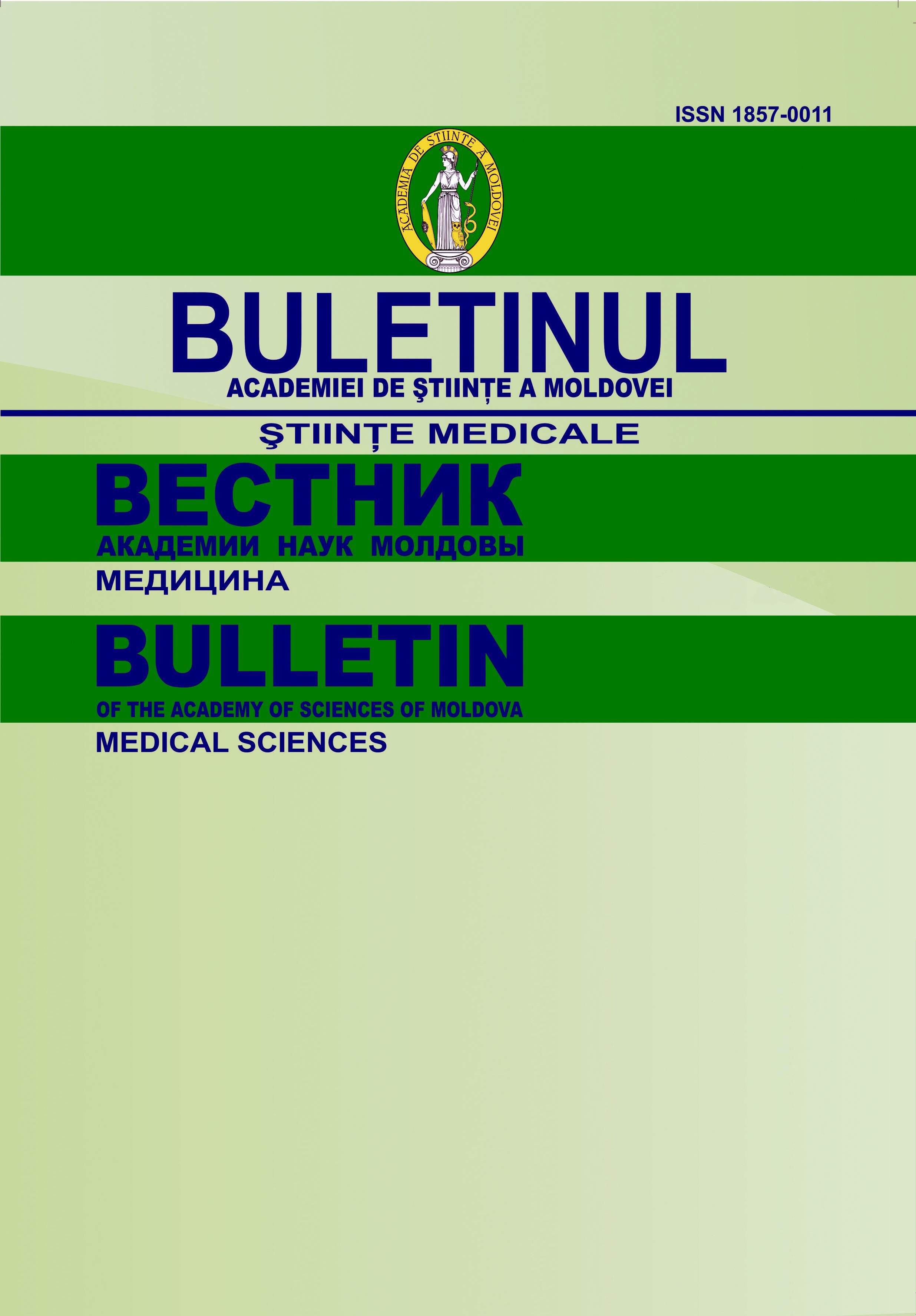Результаты лечения туберкулеза с лекарственной устойчивостью микобактерий с применением бедаквилина и деламанида
DOI:
https://doi.org/10.52692/1857-0011.2021.1-69.15Ключевые слова:
туберкулез, лекарственная устойчивость, бедаквилин, деламанидАннотация
В статье представлены результаты анализа эффективности и безопасности бедаквилина и деламанида у пациентов с множественным лекарственно-устойчивым туберкулезом (МЛУ-ТБ). Исследовано 73 пациента с МЛУ-ТБ легких, получивших лечение бедаквилином и/или деламанидом в течение > 4 недель в сочетании с фоновым режимом, рекомендованном ВОЗ. Всем пациентам схема лечения подбиралась индивидуально, согласно тесту лекарственной чувствительности. Средний возраст пациентов составил 49,1±2,77 лет, мужчины составили 46 (63,0%), женщины — 27 (37,0%). Пациенты были разделены на 3 группы: I группа — 28 пациентов, которым в схему лечения включили бедаквилин, II группа — 25 пациентов, которым в схему лечения включили деламанид, III группа — 20 пациентов лечились обоими препаратами. Через месяц после лечения количество гемоглобина в сравнении с исходным значением в I группе повысилось в среднем на 29,5% (р<0,05), во II и III группах на 31,9% (р<0,05) и 31,4% (р<0,05) соответственно. Среднее значение альбумина повышалось на 13,2%, 14,7% и 20,3% в I, II и III группах соответственно. Концентрация АЛТ и АСТ в крови после лечения снизилась соответственно на 24,0 и 28,2% в I группе, на 29,8 и 36,5% (р<0,05) во II группе, на 32,0 (р<0,05) и 39,0% (р<0,05) в III группе. Образцы 49 (80,3%), 44 (71,5%) и 28 (45,9%) пациентов были устойчивы к этамбутолу, пиразинамиду и стрептомицин соответственно. Устойчивы к канамицину были 30,1% образцов, к офлоксацину — 68,5%. В 58,9% случаев были положительные посевы мокроты на момент начала лечения бедаквилином и/или деламанидом. Из них 39,7% достигли конверсии культуры. У 43,8% пациентов наблюдались нежелательные реакции. Включение в схему противотуберкулезной терапии препаратов бедаквилин и деламанид способствует клиническому улучшению и снижению бактеривыделения в достаточно короткий срок. Лечение пациентов с МЛУ-ТБ бедаквилином и/ или деламанидом было эффективным и хорошо переносимымЗагрузки
Опубликован
2021-05-11
Выпуск
Раздел
Научная статья
Лицензия
Copyright (c) 2021 Вестник Академии Наук Молдовы. Медицина

Это произведение доступно по лицензии Creative Commons «Attribution» («Атрибуция») 4.0 Всемирная.



